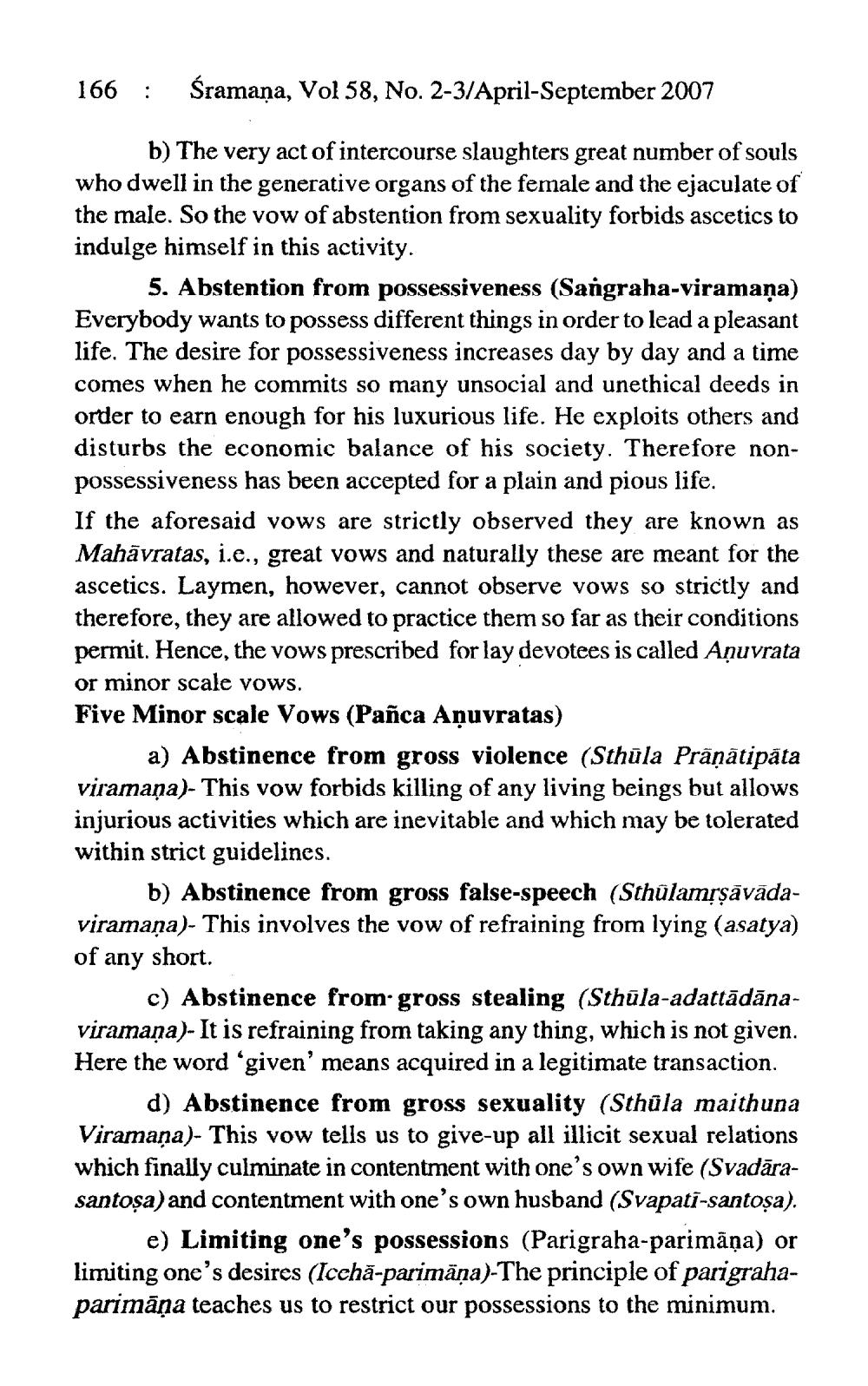________________
166
: Śramana, Vol 58, No. 2-3/April-September 2007
b) The very act of intercourse slaughters great number of souls who dwell in the generative organs of the female and the ejaculate of the male. So the vow of abstention from sexuality forbids ascetics to indulge himself in this activity.
5. Abstention from possessiveness (Sangraha-viramana) Everybody wants to possess different things in order to lead a pleasant life. The desire for possessiveness increases day by day and a time comes when he commits so many unsocial and unethical deeds in order to earn enough for his luxurious life. He exploits others and disturbs the economic balance of his society. Therefore nonpossessiveness has been accepted for a plain and pious life.
If the aforesaid vows are strictly observed they are known as Mahāvratas, i.e., great vows and naturally these are meant for the ascetics. Laymen, however, cannot observe vows so strictly and therefore, they are allowed to practice them so far as their conditions permit. Hence, the vows prescribed for lay devotees is called Aṇuvrata or minor scale vows.
Five Minor scale Vows (Pañca Aṇuvratas)
a) Abstinence from gross violence (Sthūla Prāṇātipāta viramaņa)- This vow forbids killing of any living beings but allows injurious activities which are inevitable and which may be tolerated within strict guidelines.
b) Abstinence from gross false-speech (Sthūlamṛṣāvādaviramaṇa)- This involves the vow of refraining from lying (asatya) of any short.
c) Abstinence from gross stealing (Sthūla-adattādānaviramaņa)- It is refraining from taking any thing, which is not given. Here the word 'given' means acquired in a legitimate transaction.
d) Abstinence from gross sexuality (Sthūla maithuna Viramaņa)- This vow tells us to give-up all illicit sexual relations which finally culminate in contentment with one's own wife (Svadārasantosa) and contentment with one's own husband (Svapatī-santoṣa).
e) Limiting one's possessions (Parigraha-parimāṇa) or limiting one's desires (Icchā-parimaṇa)-The principle of parigrahaparimāṇa teaches us to restrict our possessions to the minimum.




